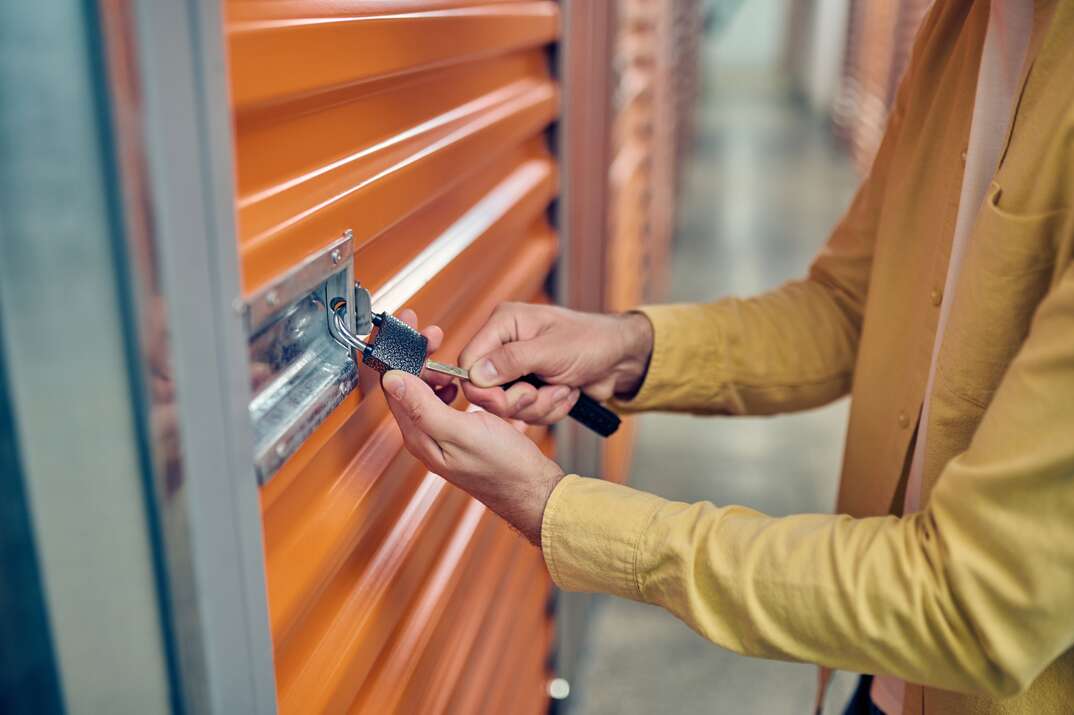- AppliancesElectriciansHVACLandscapingLocksmithPest ControlPlumbingRenovationRoofingT V RepairAll Home Improvement
- Car AccidentClass ActionCorporate LawCriminal DefenseDivorce LawEmployment LawFamily LawFinancial LawLegal AidMedical Injury LawyersMedical MalpracticeReal Estate LawWater Fire RestorationAll Legal
- InvestmentRetirementAll Finance
- Animal InsuranceAutoGeneral InsuranceHealth PolicyHome RentersAll Insurance
- DentalHealth SpecialistsAll Medical
- Animal CareVeterinaryAll Pets
- Auto GlassTowingAll Automotive
How Much Does Storage Insurance Cost?

Storage units are increasingly common in towns and cities across the United States. Whether you're keeping seasonal decorations or furniture you may want in the future in an off-site storage unit, you might need storage insurance.
Storage unit insurance refers to a specific policy that covers property you have in a storage unit. What storage insurance covers depends on the specifics of your policy.
Your insurance policy will dictate what types of events are covered. For example, a policy might cover losses you sustain if your items are damaged by fire but not cover damages related to flood. Some common types of coverage to check for include:
- Fire, explosion or smoke damage
- Hurricane, tornado or other storm damage
- Vandalism or theft
- Collapse of the building that causes property damage
- Water leak damage
- Flood damage
- Earthquake damage
The type of coverage you need depends on where you're located and what risks you may face there.
How Much Storage Insurance Do You Need?
The amount of coverage you have depends on the policy you purchase. For example, if you only buy $10,000 in coverage, you'll only ever receive up to $10,000 in compensation, regardless of the losses you actually incur.
A good rule of thumb is to purchase enough coverage that you can recoup most or all of your losses if the items in your storage unit are a total loss.
Does Your Homeowners Insurance Cover Items in a Storage Unit?
You may want to consider insurance you already have when you decide how much insurance to get for your storage unit items.
For example, does homeowners insurance cover storage unit items? The answer depends on your policy. Some homeowners insurance policies include personal property riders. These may cover personal property losses — damage to items you own — even if those items aren't stored within or near your home. However, in many cases, this coverage only covers 10% of the total personal property compensation for items stored away from your home. For example, if you have $50,000 in personal property coverage, you'd only be able to claim up to $5,000 in coverage for items in a storage unit.
Does renters insurance cover storage unit items? The same answers apply to renters insurance for storage unit items. Depending on your riders, you may have this extra coverage, but it's likely to only provide a certain percentage to cover any losses outside your immediate home and property.
More Related Articles:
- 7 Clauses to Look Out For in Your Homeowners Insurance Policy
- What’s a Deductible?
- Insurance Terms, What Is an Act of God?
- What Is an Insurance Premium?
- What’s the Difference Between Homeowners and Renters Insurance?
Luckily, it doesn't cost a ton to buy extra coverage for items in your storage unit. How much does it cost to insure a storage unit? You actually have to think about how much coverage in dollars you want.
Typically, you can purchase coverage in units, such as blocks of $10,000 in coverage. Average costs for this amount of coverage can range from $5 to $30 for $1,000 to $15,000 in coverage, according to Insurify.
How to Get Insurance for Storage Units
One of the easiest ways to buy insurance coverage for items in your storage unit is to opt for self-storage insurance through the business you rent the unit from. Many offer add-on coverage that's bundled with your rental payment each month.
While this might be the most convenient option, it may not be the cheapest. You may want to talk to your homeowners or renters insurance agent about optional add-on coverage or shop online for additional coverage to find out if you can get a better deal. Ensure you compare the big picture — for example, if one policy doesn't cover fire or flood damage, it might be worth a bit more expense to get that type of coverage for your items.
All CAD conversions are based on the exchange rate on the date of publication.
Elocal Editorial Content is for educational and entertainment purposes only. Editorial Content should not be used as a substitute for advice from a licensed professional in your state reviewing your issue. The opinions, beliefs and viewpoints expressed by the eLocal Editorial Team and other third-party content providers do not necessarily reflect the opinions, beliefs and viewpoints of eLocal or its affiliate companies. Use of eLocal Editorial Content is subject to the
Website Terms and Conditions.The eLocal Editorial Team operates independently of eLocal USA's marketing and sales decisions.



